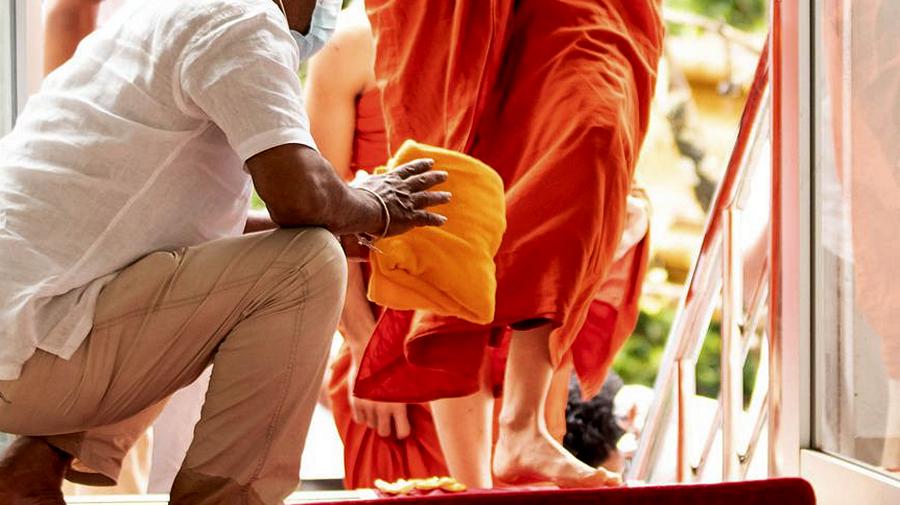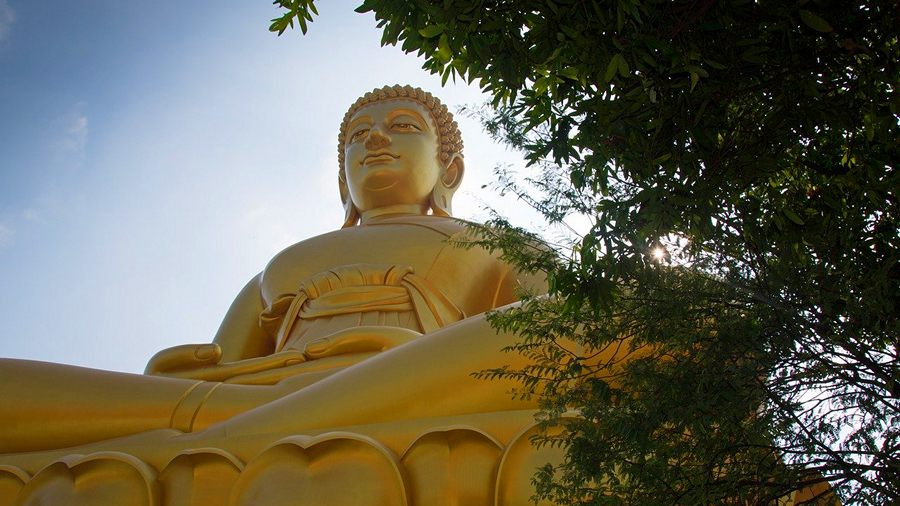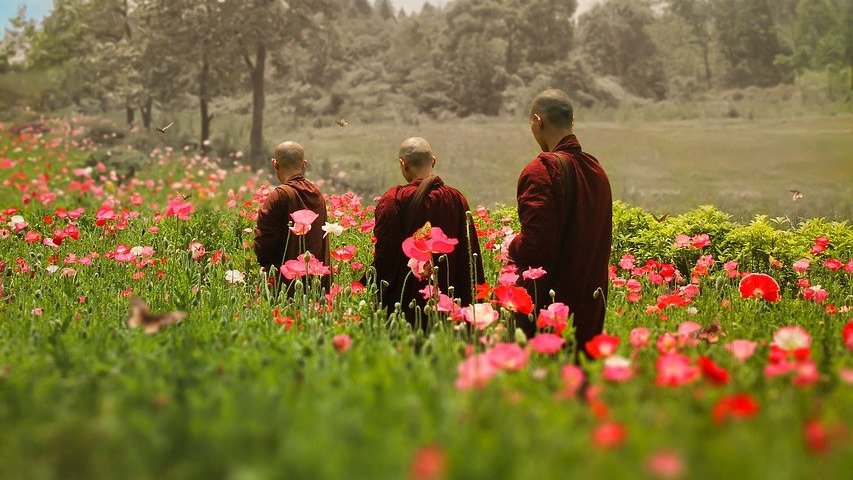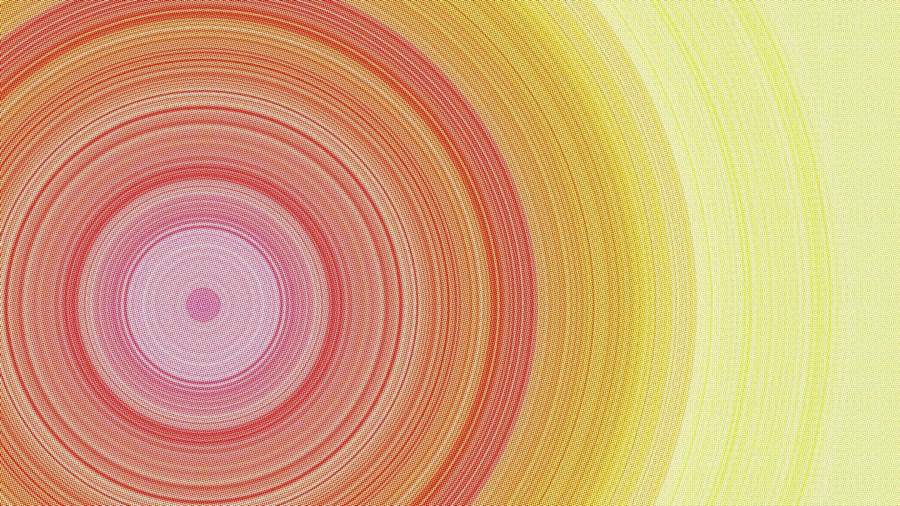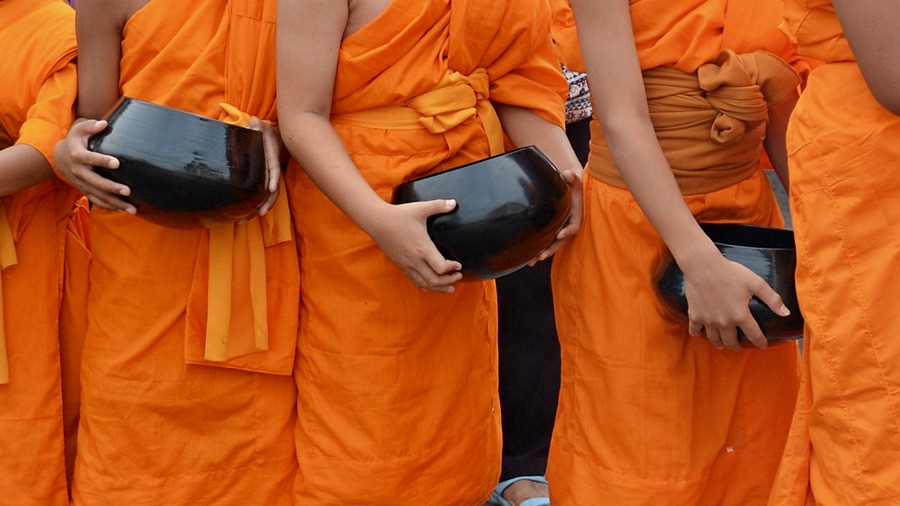On one occasion the Blessed One was dwelling at Sāvatthī in Jeta’s Grove, Anāthapiṇḍika’s Park. Then Princess Sumanā, accompanied by five hundred chariots and five hundred court girls, approached the Blessed One, paid homage to him, and sat down to one side. Princess Sumanā then said to the Blessed One:
“Here, Bhante, there might be two disciples of the Blessed One equal in faith, virtuous behavior, and wisdom, but one is generous while the other is not. With the breakup of the body, after death, they would both be reborn in a good destination, in a heavenly world. When they have become devas, would there be any distinction or difference between them?”
“There would be, Sumanā,” the Blessed One said. “The generous one, having become a deva, would surpass the other in five ways: in celestial life span, celestial beauty, celestial happiness, celestial glory, and celestial authority. The generous one, having become a deva, would surpass the other in these five ways.”
“But, Bhante, if these two pass away from there and again become human beings, would there still be some distinction or difference between them?”
“There would be, Sumanā,” the Blessed One said. “When they again become human beings, the generous one would surpass the other in five ways: in human life span, human beauty, human happiness, human fame, and human authority. When they again become human beings, the generous one would surpass the other in these five ways.”
“But, Bhante, if these two should go forth from the household life into homelessness, would there still be some distinction or difference between them?”
“There would be, Sumanā,” the Blessed One said. “The generous one, having gone forth, would surpass the other in five ways. 1) He would usually use a robe that has been specifically offered to him, seldom one that had not been specifically offered to him. 2) He would usually eat almsfood that has been specifically offered to him, seldom almsfood that had not been specifically offered to him. 3) He would usually use a lodging that had been specifically offered to him, seldom one that had not been specifically offered to him. 4) He would usually use medicines and provisions for the sick that had been specifically offered to him, seldom those that had not been specifically offered to him. 5) His fellow monastics, those with whom he dwells, would usually behave toward him in agreeable ways by bodily, verbal, and mental action, seldom in disagreeable ways. They would usually present him what is agreeable, seldom what is disagreeable. The generous one, having gone forth, would surpass the other in these five ways.”
“But, Bhante, if both attain arahantship, would there still be some distinction or difference between them after they have attained arahantship?”
“In this case, Sumanā, I declare, there would be no difference between the liberation of one and the liberation of the other.”
“It’s astounding and amazing, Bhante! Truly, one has good reason to give alms and do meritorious deeds, since they will be helpful if one becomes a deva, again becomes a human being, or goes forth.”
“So it is, Sumanā! So it is, Sumanā! Truly, one has good reason to give alms and do meritorious deeds, since they will be helpful if one becomes a deva, again becomes a human being, or goes forth.”
This is what the Blessed One said. Having said this, the Fortunate One, the Teacher, further said this:
“As the stainless moon
moving through the sphere of space
outshines with its radiance
all the stars in the world,
so one accomplished in virtuous behavior,
a person endowed with faith,
outshines by generosity
all the misers in the world.
“As the hundred-peaked rain cloud,
thundering, wreathed in lightning,
pours down rain upon the earth,
inundating the plains and lowlands,
so the Perfectly Enlightened One’s disciple,
the wise one accomplished in vision,
surpasses the miserly person
in five specific respects:
life span and glory,
beauty and happiness.
Possessed of wealth, after death
he rejoices in heaven.”
Read this translation of Aṅguttara Nikāya 5.31 Sumanasutta: Sumanā by Bhikkhu Bodhi on SuttaCentral.net. Or read a different translation on SuttaCentral.net, SuttaFriends.org or DhammaTalks.org.
Or listen on SC-Voice.net.





